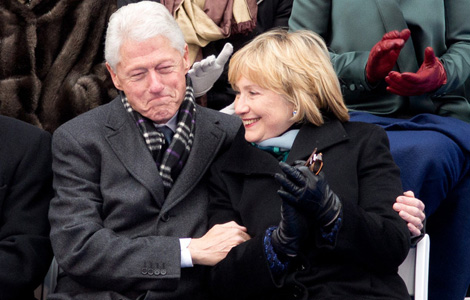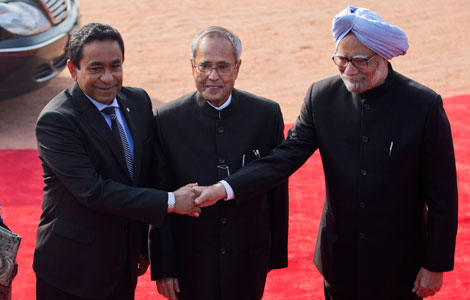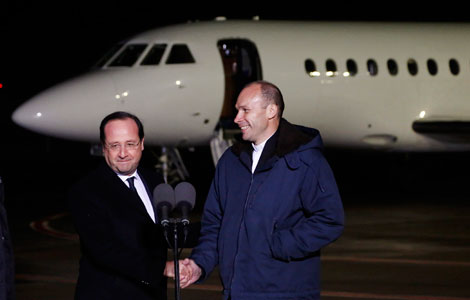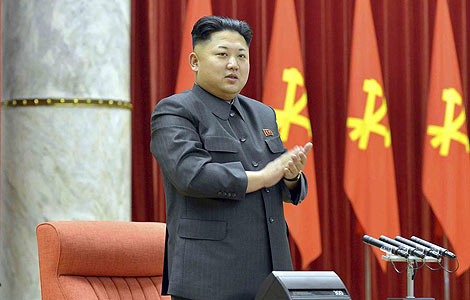

The night before a round of high-stakes nuclear talks with Iran, US President Barack Obama told his chief of staff he had "absolute confidence we have the right team on the field".
Obama was not referring to his public negotiating team, led by senior State Department official Wendy Sherman, nor even to his secretary of state, John Kerry, who was soon to sweep in from Tel Aviv to join the early November discussions in Geneva.
Rather, White House chief of staff Denis McDonough recalled, Obama was talking about a secret group led by Bill Burns, Kerry's discreet, disciplined and self-effacing deputy.
At times using US military aircraft, hotel side entrances and service elevators to keep his role under wraps, Burns undertook arguably the most sensitive diplomatic mission of Obama's presidency: secret talks with Iran to persuade it to curb its nuclear program.
In picking Burns, seen by his peers as a leading US diplomat of his generation, Obama gave the envoy, who speaks Arabic, French and Russian, a chance to ease more than 30 years of estrangement between the United States and Iran.
If it ensures Teheran does not build a nuclear bomb, the Iran deal could stand as the capstone to Burns' 31-year diplomatic career.
If it fails, it could bring Israel or the US closer to a military strike on Iran and fuel criticism that Washington squandered its best opportunity for a peaceful solution by appeasing Iran rather than pressuring it further.
Current and former US officials, including four former secretaries of state, describe Burns as well suited to dealing with the Iranians, with the sensitivity to see Teheran's perspective and the tenacity not to compromise US interests.
"He is steady, reliable, intelligent, disciplined and - in his understated way - persuasive," said former US secretary of state Henry Kissinger.
"I like to hear his judgments and can learn from them," Kissinger said. "That's not something I volunteer very often."
He said he saw Burns' deft touch in the discreet way the diplomat, then ambassador to Russia, reported private conversations between Kissinger and Russian President Vladimir Putin back to Washington.
"I wanted to make sure they were not in the cable traffic lest they leak," Kissinger said. "He handled that with great skill."
Even those who square off across the table speak well of Burns.
He "knows Iran very well and also understands Iran's culture, expectations and position in the region", said a senior Iranian official, speaking on condition of anonymity. "Sometimes during the talks Iranian negotiators get angry and pressure him, but he remains calm and patient."
Bureaucratic skirmishes
Burns, 57, who has a lanky frame that he used to good effect on the basketball court in his youth, has executed the rarest of Washington careers. He has taken on politically perilous assignments such as heading the State Department's Middle East shop during the 2003 US invasion of Iraq, all without a hint of personal failure or personal controversy.
Running the Bureau of Near Eastern Affairs, which handles Middle East policy, in 2001-05 made him a participant in the epic struggles between the State and Defense Departments over the war and its aftermath - battles the Pentagon largely won.
Burns, who declined to be interviewed for this article, is no stranger to bureaucratic infighting, though colleagues sometimes conduct skirmishes on his behalf. "If an elbow has to be thrown, usually it'll be thrown by someone else for him," said one US official.
In recent years, officials say, Burns has acted as liaison between the White House, which directs foreign policy with a firm hand, and the State Department, where mid-level officials sometimes complain of being kept in the dark.
Over the past nine months, Burns, along with Jake Sullivan, Vice-President Joe Biden's national security adviser, met secretly with Iranian officials five times in Oman and Switzerland.
Their assignment became public only when Teheran and six major powers reached a Nov 24 agreement for Iran to constrain its nuclear program for six months in exchange for sanctions relief that Washington estimates at $7 billion.
Critics have targeted the deal rather than Burns. Some argue that the sanctions relief is worth more than the White House says, and will undercut US economic leverage on Iran.
Reuters







